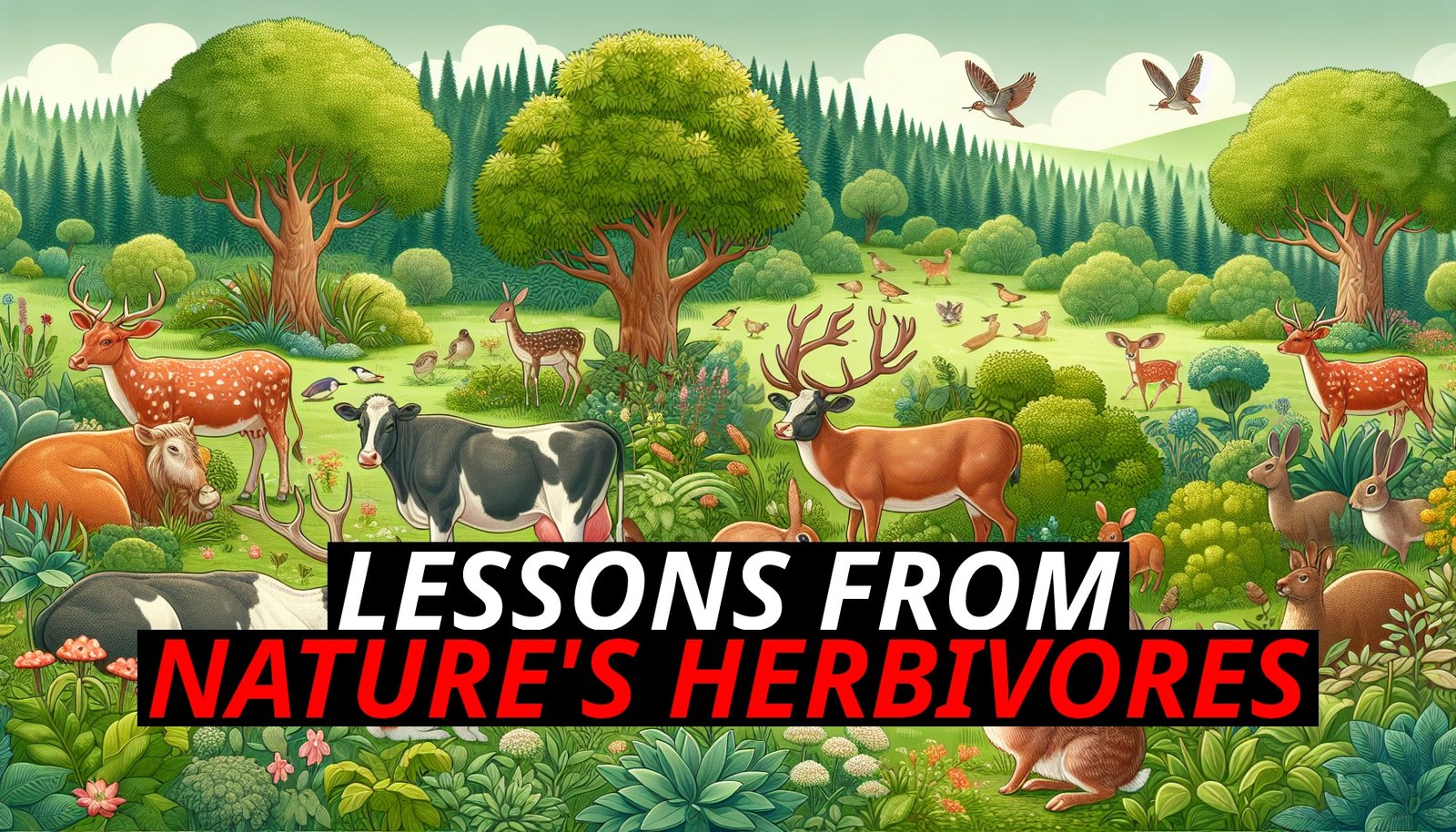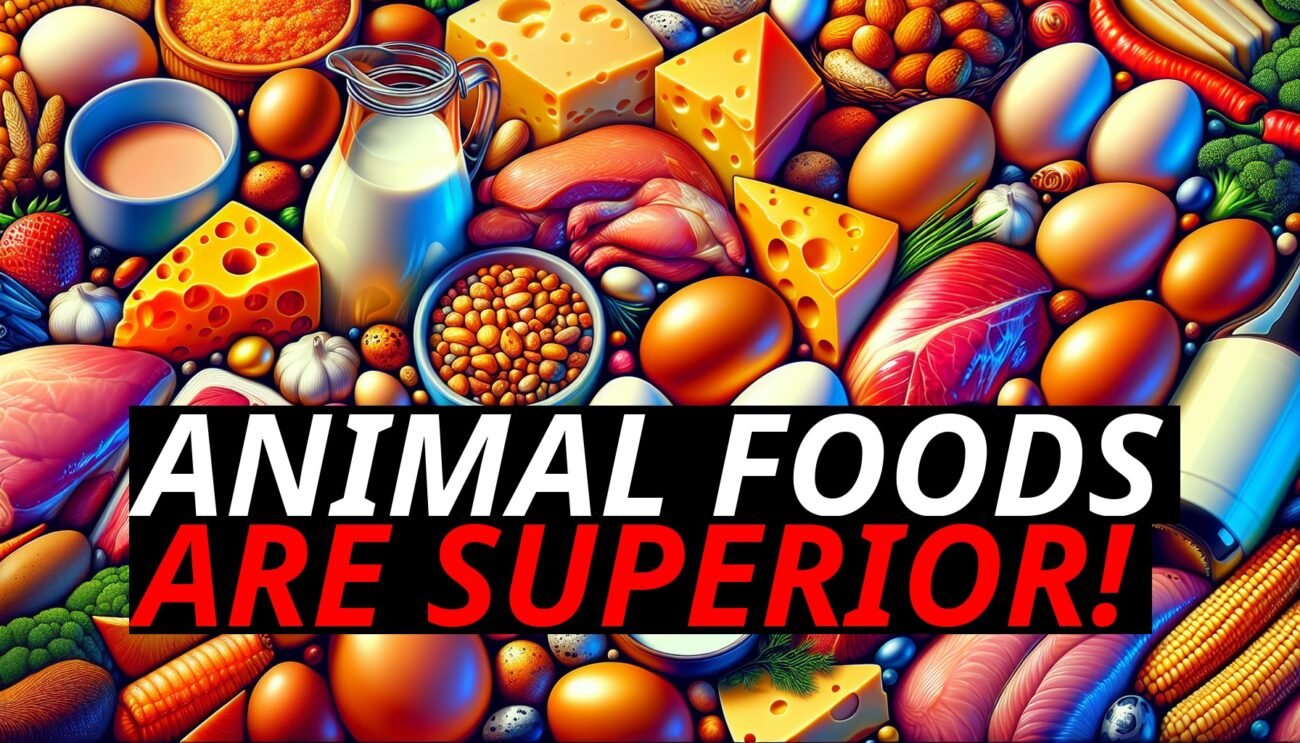Picture a cow grazing in a field—it’s not just eating any plant it encounters. In fact, herbivores like cows, giraffes, and goats are extremely selective about what they eat. This selectivity is key to their survival, as many plants contain toxins that could harm them if consumed in large quantities. But humans, too, could benefit from learning this lesson. With the rise of plant-based diets, it’s important to recognize that not all plants are created equal. Understanding plant toxicity can help us make better, more informed dietary choices.
Let’s dive into what humans can learn from herbivores’ specialized diets and how we can apply these lessons to avoid harmful plant compounds in our own food.
Herbivores Are Experts In Plant Selection
In the wild, herbivores have evolved to navigate the complexities of plant life, carefully selecting the plants that are safe for them to eat. Many plants produce toxins as a defense mechanism to prevent animals from eating them, and herbivores have adapted by developing highly specialized diets. This selectivity allows them to consume certain plants that their digestive systems are designed to break down while avoiding others that could be dangerous.
For example:
- Cows primarily graze on specific types of grasses and are well-equipped to digest cellulose, but they can’t safely consume many types of leaves or other plant matter that might contain toxins.
- Giraffes specialize in eating leaves from acacia trees, which have thorns and produce bitter-tasting compounds that would deter most animals. Yet giraffes have adapted to thrive on this particular plant.
These herbivores aren’t just picky for the sake of it—their selectivity is a survival strategy. If they consumed the wrong plants, they could suffer from poisoning or nutrient deficiencies. This is a critical lesson for humans as well. Just because something is a plant doesn’t mean it’s automatically good for us.
Not All Plants Are Safe: The Reality Of Plant Toxins
One of the biggest misconceptions about plant-based diets is that all plants are inherently healthy. In reality, many plants contain toxins or anti-nutrients designed to protect them from being eaten. While small amounts of these compounds might not pose an immediate threat, consuming large quantities of them over time can lead to health problems.
Some common plant toxins include:
- Oxalates: Found in spinach, almonds, and beets, oxalates can bind to calcium in the body, potentially leading to kidney stones or nutrient deficiencies if consumed in large amounts.
- Lectins: Found in legumes and grains, lectins can cause digestive issues and interfere with nutrient absorption, especially when these foods are not properly cooked or prepared.
- Phytates: These compounds, found in seeds and whole grains, can block the absorption of minerals like zinc and iron, making it harder for your body to access essential nutrients.
While humans have a more varied diet than herbivores, our bodies still react to these plant compounds. In some cases, long-term exposure to high levels of plant toxins can contribute to inflammation, digestive issues, or even chronic disease. By understanding which plants contain these toxins and how to prepare them properly, we can make smarter dietary choices.
The Importance Of Selectivity In Human Diets
Just like herbivores are selective about the plants they consume, humans should be mindful of the plants we include in our diets. While plant-based foods can offer many health benefits, we need to be aware of the potential risks associated with certain plants and how to minimize them.
For instance, grains and legumes are often touted as healthy staples in plant-based diets, but they contain lectins and phytates that can make it difficult for the body to absorb important nutrients. To reduce these anti-nutrients, traditional cooking methods like soaking, sprouting, and fermenting can help make these foods safer and more digestible.
Similarly, while leafy greens like spinach are considered a nutritional powerhouse, their high oxalate content can be problematic for some people, especially those prone to kidney stones. Consuming a variety of low-oxalate greens, such as kale or collard greens, can provide similar nutrients without the potential downsides.
Being selective doesn’t mean avoiding all plants; it means understanding which plants are best suited to your body and how to prepare them to minimize potential risks. This approach can help prevent the accumulation of harmful toxins while still reaping the benefits of plant-based foods.
Learning From Herbivores: How To Make Better Plant Choices
What can humans learn from the careful eating habits of herbivores? One key takeaway is that variety and preparation matter. Herbivores don’t eat the same plants every day, and they rely on specific digestive adaptations to process the foods they do eat. Similarly, humans benefit from a varied diet that includes a mix of plant and animal products, and from understanding how to make the most of the foods we eat.
Here are a few strategies to apply the lessons from herbivores to human diets:
- Diversify Your Plant Sources: Just as herbivores consume a wide variety of plant species, humans should aim to eat a diverse range of fruits, vegetables, and grains. This helps prevent overexposure to any one type of plant toxin and ensures you get a broad spectrum of nutrients.
- Choose Low-Toxin Plants: Some plants are naturally lower in toxins than others. For example, certain fruits and vegetables are easier to digest and less likely to contain anti-nutrients. Focus on foods that are nutrient-dense but carry a lower risk of containing harmful compounds, such as berries, leafy greens, and cruciferous vegetables.
- Use Traditional Preparation Methods: Many cultures have long understood the importance of preparing plant foods in ways that reduce their toxin levels. Soaking, sprouting, and fermenting grains and legumes can help neutralize anti-nutrients like phytates and lectins, making them easier to digest and more nutritious.
- Consider Individual Sensitivities: Just as different herbivores are adapted to eat specific plants, individual humans may react differently to certain foods. Pay attention to how your body responds to different plant-based foods, and adjust your diet accordingly. For example, if you experience digestive discomfort after eating legumes or grains, you might need to modify how you prepare them or reduce your intake.
Conclusion: Selectivity Is Key To A Healthy Diet
Herbivores have evolved to thrive on specialized diets, carefully selecting plants that their bodies are equipped to digest while avoiding those that could be harmful. Humans, too, can benefit from this selective approach when it comes to plant-based foods. Not all plants are safe to eat in large quantities, and many contain toxins that require careful preparation and consumption.
By being more mindful of which plants we eat and how we prepare them, we can make smarter choices that support our health. Just as herbivores rely on their instincts and adaptations to navigate the plant world, we can rely on knowledge and preparation to make our diets safer and more balanced.













